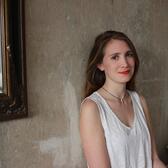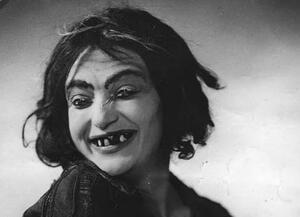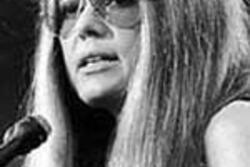Feminists For Halloween
I think we can all agree that 2017 has been a veritable garbage fire thus far. I don’t need to tell you that this year has given a whole new meaning to the word dystopia. But I do have one piece of good news. Despite the aforementioned garbage fire––or, more likely, because of it––there’s never been a better Halloween for feminists.
Confused? Hear me out. Yes, I know that Halloween and the horror genre have never been bastions for women’s rights. This makes sense. Horror, and the traditions and folktales that predate it, stem from society’s deepest fears and anxieties, and too often, those fears and anxieties involved “the Other.” Case in point: the archetype of the medieval witch was based not only on fear of powerful women but also possibly on stereotypes about Jews.
I’m an ardent fan of (and writer of) psychological horror and the Gothic, and these social underpinnings of the genres have always made me a tad uncomfortable. What am I supposed to make of the fact that my beloved Gothic derives many of its creeps and scares from anxieties about powerful women, foreigners, and homosexuality? I’ve long wondered how to reconcile my love for creepy Victoriana and eldritch ghosts with my love for, you know, women’s rights. Or, put more simply, I’ve always wondered: can a feminist love Halloween?
This year, I’m proud to report that yes, we can. For the first time, I’m seeing a large-scale reclamation of horror tropes by the othered groups that those tropes are supposed to vilify. Look no further than the current pop culture infatuation with the term witch, which has burst into the mainstream since the 2016 election. Much like queer or slut, this word is being reclaimed by the very people it was supposed to insult. Suddenly the broads of Broad City are calling themselves witches, Lana del Rey is trying to curse president Trump, and one of my favorite writers is declaring herself to be a predator-hunting witch in the New York Times. These days, “witch” is no longer just the epithet you hurl at, say, an older female candidate for president; the fed-up feminist sector of our popular culture is proudly claiming it for its own.
Even actual devil-pact witches aren’t played only for scares in modern media. When I watched 2015’s The VVitch, a Puritan horror movie that ends with (spoiler alert) a downtrodden teenage girl signing a pact with the devil and rising giddy with power into the night sky, I cheered for her, and I think the narrative wanted me to.
As heady as it is to proudly claim formerly offensive labels, the truth is that women and other marginalized groups (sadly) don’t actually possess magic powers. It would be disingenuous to pretend that we did. But here’s the other transgressive component of modern horror: the genre is finally figuring out that it’s a lot scarier to be the Other than it is to be some powerful dude who’s afraid of that Other. Take Get Out, a 2017 horror movie about racism, or Stranger Things, Netflix’s show about a small town in 1980s Indiana where, well, strange things start to happen. The horror in Stranger Things stems from the military industrial complex making choices without regard for the safety of its citizens. It also explores the horror of being a woman who’s vilified by the medical establishment and the police as crazy, who’s gaslighted and told that her experiences aren’t valid. Watching this show is a stark reminder that modern popular culture is finally figuring out what’s truly terrifying.
In an inexorably regressing world, it feels truly subversive to consume this modern media about the real horrors in our society, just as it feels truly rebellious to claim the mantle of learned women who were historically persecuted for their power . So this Halloween, I’m proudly putting up my animatronic raven, hanging up my spooky spider lights, and dressing up as a Victorian spiritualist. Because I know the social justice witches, angry feminists, and marginalized voices need all the power they can get to fight institutionalized racism, xenophobia, and sexism, aka the real demonic forces out there.
And the spookier, the better.







